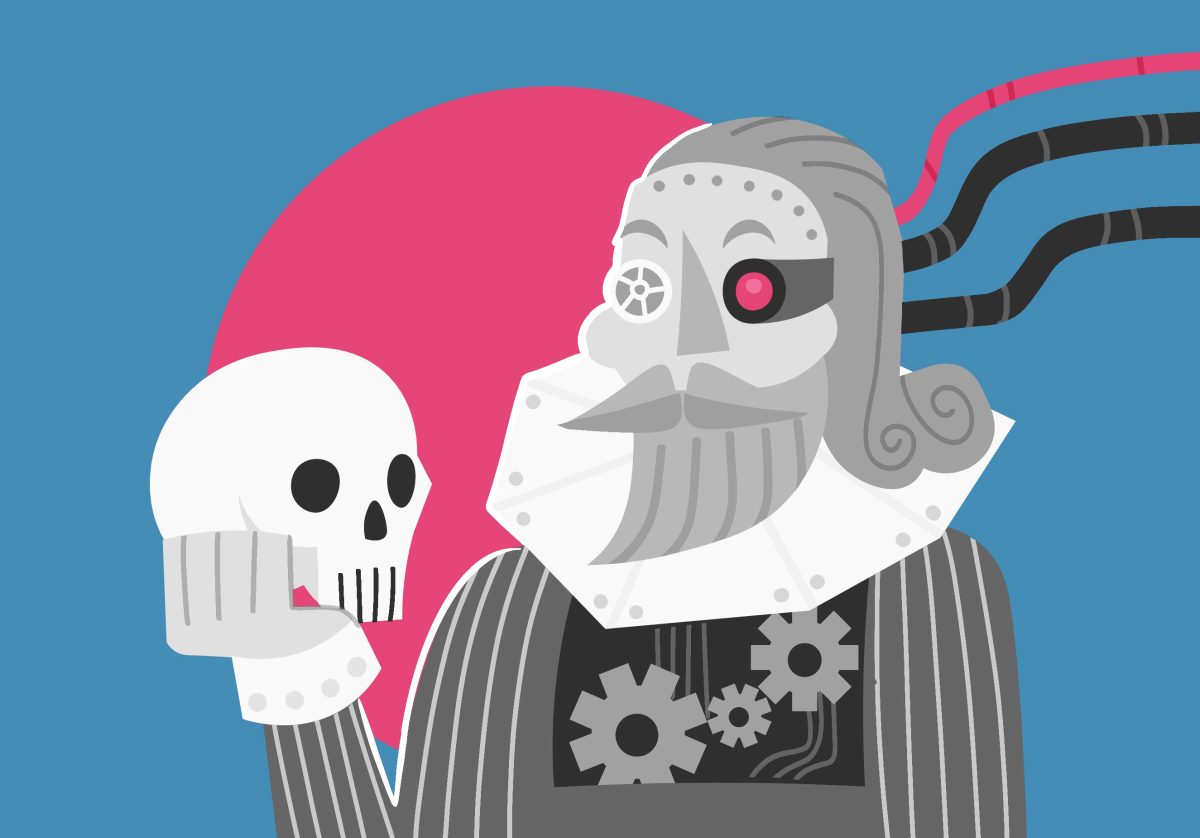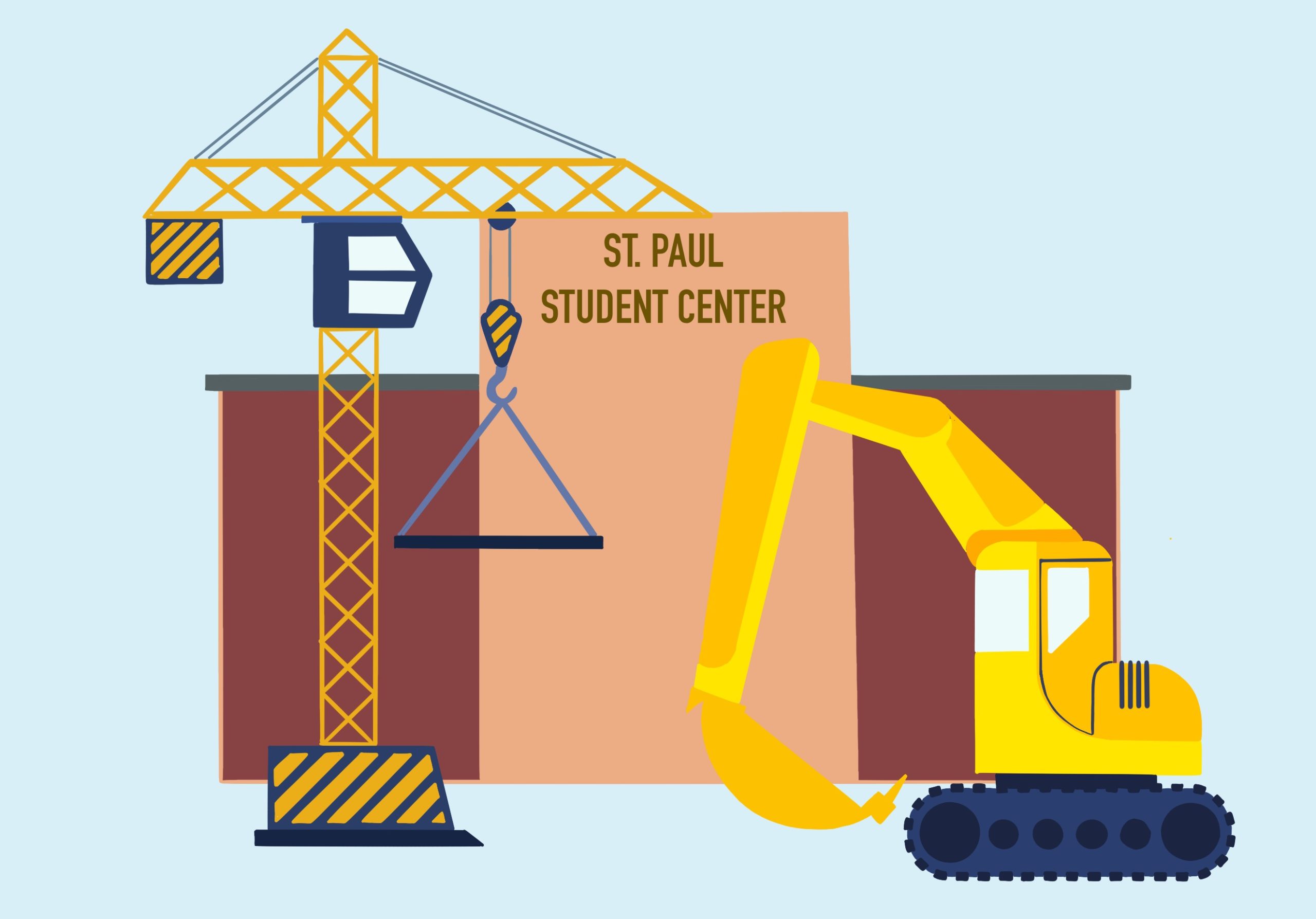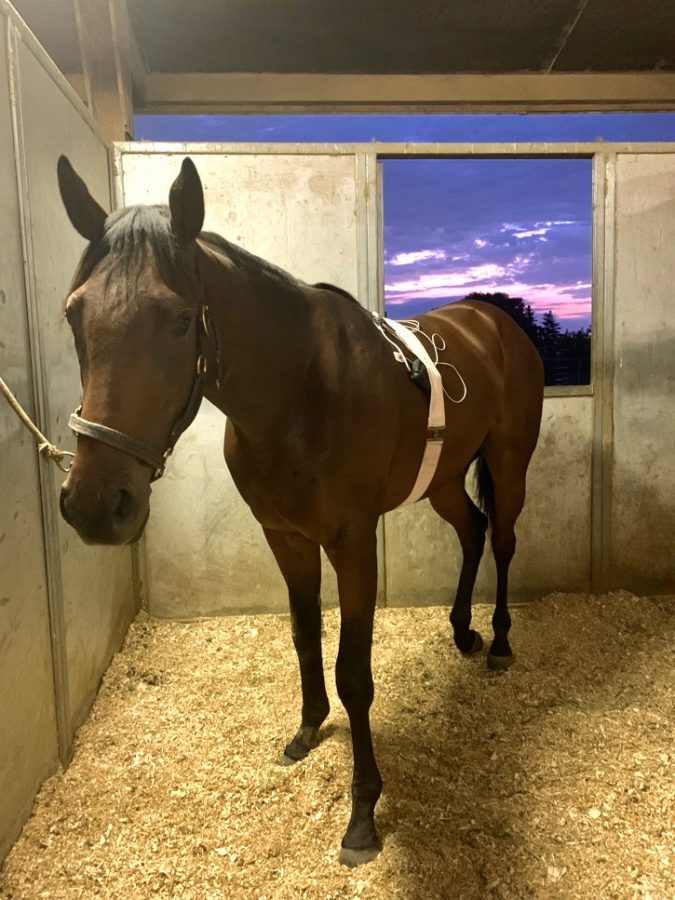Researchers at the University of Minnesota are studying irregular heart rhythms and genetics in racehorses to identify factors that could be putting these animals at a higher risk of dying from heart issues.
By studying horses’ genetics through blood samples, researchers could identify potential genetic variants that put them at a higher risk of death from a heart condition. If researchers can pinpoint a genetic component causing these deaths, it will be easier to diagnose those horses prior to races and help determine breeding decisions, according to University genetics assistant professor and researcher Sian Durward-Akhurst.
This research on racehorses also has the potential to apply to humans, and may help explain why some athletes suddenly collapse and die. There are many genetic similarities between horse athletes and human athletes, said Durward-Akhurst.
Durward-Akhurst estimated more than 100 young human athletes collapse and die each year, presumably from irregular heart rhythms.
“People know that [horses] have arrhythmias, but no one’s looked to see whether or not we can predict which ones have them,” Durward-Akhurst said. “What I’m hoping is that some of this research will shed some light on why certain human athletes go on to die.”
Some horses have arrhythmias, or abnormal heartbeat rhythms, said Dr. Lynn Hovda, chief commission veterinarian for the Minnesota Racing Commission. Arrhythmias can cause sudden collapses and death in horses while exercising because the heart is not pumping enough blood to the brain and around the body.
“If your heart is not pumping any blood and you have just finished racing and you’re not getting any oxygen from your blood … then you have no oxygen,” Hovda said. “If you have no oxygen, you basically die.”
Diagnosing arrhythmias can be difficult because the condition often goes unnoticed until after a horse, or human, dies after exercising. Additionally, medical professionals can only diagnose an arrhythmia if the individual’s heart is still beating, according to University research assistant Kendall Blanchard.
By implementing genetic testing and more frequent monitoring of horses’ heartbeats, diagnosing arrhythmias in horses and humans may become easier, researchers said.
Arrhythmia’s impact on horses and owners
When a horse dies from an arrhythmia, it can be a devastating loss for the owner, Durward-Akhurst said.
“Cardiovascular health is central to performance for any horse in a discipline like racing, endurance, show competitions, etc.,” said Wendy Wustenberg, owner of Windswept Hill Farm in Farmington, MN.
Wustenberg owns a 20-year-old retired show horse named Jay with an arrythmia condition.
“In my horse’s case, there [were] no clinical signs of an illness or impairment for everyday life, but knowing that he has a murmur is good to know,” Wustenberg said.
According to Wustenberg, diagnosing an arrhythmia in horses is important for trainers and owners, as there can be additional costs and risks associated with continuing to race a horse with an arrhythmia.
One common type of arrhythmias that can lead to death is atrial fibrillation. Every horse that experiences atrial fibrillation will have an issue if they are forced to exercise, Durward-Akhurst said.
Atrial fibrillation is also very common in humans when an individual has an abnormally large heart.
With atrial fibrillation, “the heart just sits there and quivers,” Hovda said, resulting in blood not being able to be dispersed around the rest of the body because the heart is not pumping enough blood.
“If it’s not pumping and it’s just sitting there quivering, you can see that no blood is moving anywhere,” Hovda said.
Durward-Akhurst and her research team are studying the genetics of racehorses with arrythmias to identify potential genetic causes of these heart issues.
“I got really interested in why certain horses get this arrhythmia and others don’t, and there’s definitely some evidence to support that there’s a genetic component,” Durward-Akhurst said. “If we could figure out why certain horses die, we can monitor the ones that are a higher risk and try and prevent [death].”
Researchers use a small machine called an electrocardiogram (ECG) to identify the horses with a heart condition. The researchers have used this equipment to test nearly 500 horses around the states since 2019, Durward-Akhurst said.
By monitoring horses with ECGs when they are both still and exercising, and analyzing the findings, researchers can determine which horses have arrhythmias, Durward-Akhurst said.
“If we can figure out why it’s going to happen and what horses it’s going to happen in, then we can say, don’t train them this day because they’re at high risk,” Durward-Akhurst said. “It’s really important because no one wants to see a horse collapse and die.”
Daily Email Edition
Get MN Daily NEWS delivered to your inbox Monday through Friday!

Published May 1, 2024

Published May 1, 2024

Published May 1, 2024
Trending
Horse heart health: UMN researchers study irregular heartbeats in racehorses
In order to prevent deaths in racehorses stemming from irregular heartbeats, researchers are studying genetics in horses across Minnesota.
Image by Photo courtesy of Kendall Blanchard
The University’s Akhurst Laboratory research project aims to identify genetic factors that contribute to risk of heart issues in racehorses. Photo courtesy of Kendall Blanchard.
by Maia Irvin
Published November 18, 2021
Leave a Comment
More to Discover
Advertisement
The Minnesota Daily • © 2024 The Minnesota Daily • Privacy Policy • FLEX Pro WordPress Theme by SNO • Log in






















